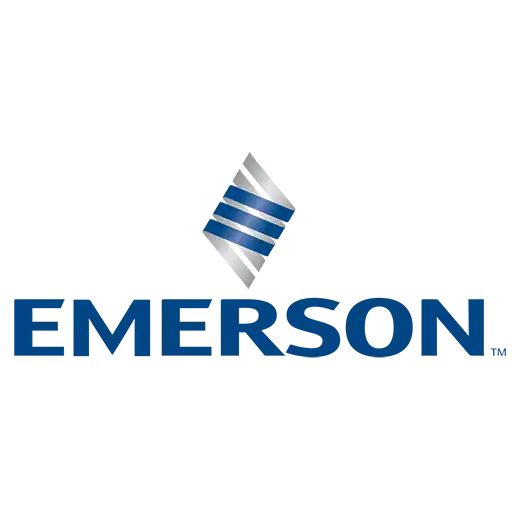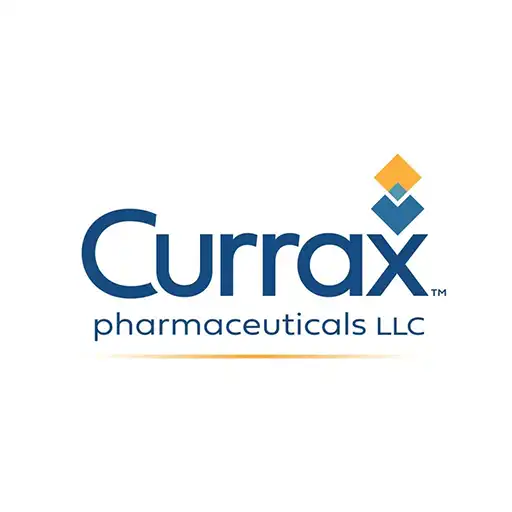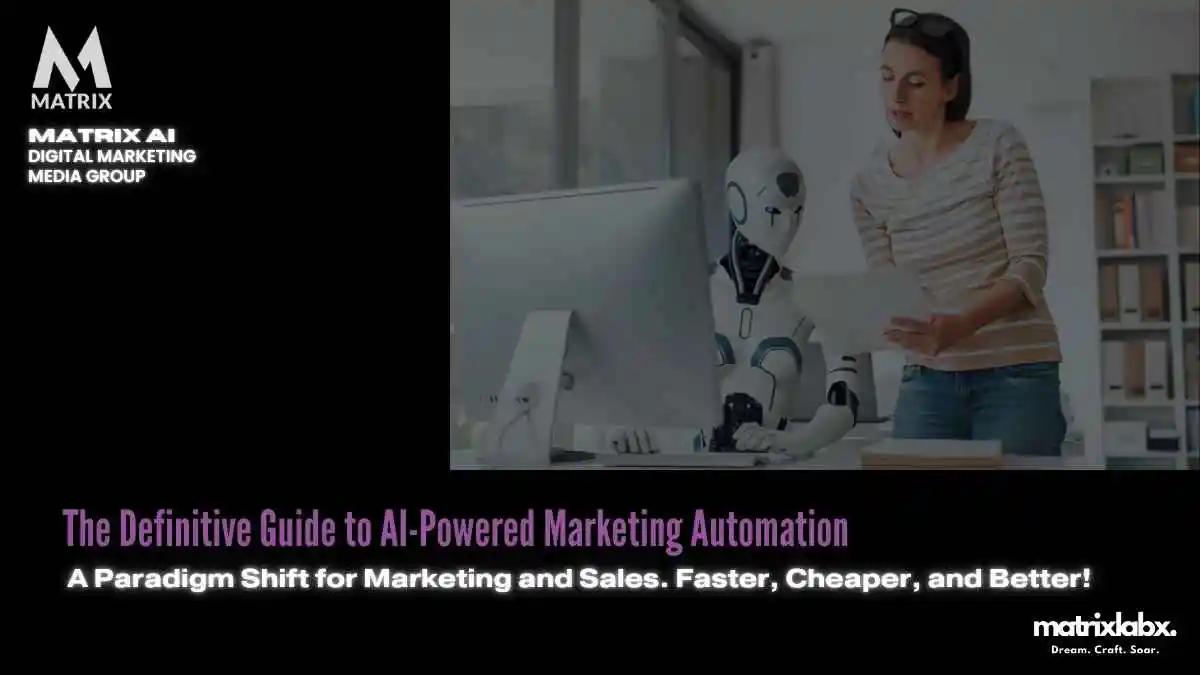The Definitive Guide to AI-Powered Marketing Automation: Transforming Strategy and Execution
Read The Definitive Guide to AI-Powered Marketing Automation: Transforming Strategy and Execution
Introduction
A Glimpse into Marketing’s Future
Imagine a time, barely a decade ago, when searching for information online often led to hours of sifting through loosely relevant results. Today, a quick query on any major search engine reveals precise answers and personalized content recommendations.
This evolution is powered by sophisticated algorithms and artificial intelligence (AI), illustrating how profoundly technology has revamped the digital marketing landscape.
In fact, according to a recent report, AI-driven marketing tools have boosted campaign success rates and customer engagement by up to 40% since their inception (MatrixLabX, 2024).
Background: Understanding AI-Powered Marketing Automation
AI-powered marketing automation represents a paradigm shift in how businesses approach marketing strategy and execution.
At its core, this technology uses AI to automate complex marketing tasks such as data analysis, customer segmentation, and personalized content delivery.
It encompasses a range of tools and platforms that leverage machine learning, natural language processing, and predictive analytics to enhance marketing efforts.
Adopting AI in marketing automation allows for more efficient handling of mundane tasks, freeing marketers to focus on strategy and creative development.
It also enhances the ability to predict customer behavior, tailor communications, and manage large volumes of data with unprecedented accuracy and speed.
As such, AI-powered marketing automation is not just a tool but a strategic asset that transforms traditional marketing into a dynamic, real-time interaction between brands and consumers.
Struggling to Keep Up with Content Demands?
In today’s digital landscape, creating consistent, high-quality content is more challenging—and more important—than ever. Without a clear plan and the right tools, your brand risks falling behind in the crowded marketplace.
The Profound Transformation Forms The Crux Of Our Exploration
This profound transformation forms the crux of our exploration in “The Definitive Guide to AI-Powered Marketing Automation: Transforming Strategy and Execution.”
This guide delves deep into how AI technologies reshape marketing strategies and execution processes, offering marketers a new playbook for success in the digital age.
Through this comprehensive examination, we aim to demystify the complexities of AI-powered tools and reveal actionable strategies that can help marketers harness this technology’s full potential to achieve superior results.
The Definitive Guide to AI-Powered Marketing Automation: Transforming Strategy and Execution
In today’s fast-paced digital landscape, businesses must innovate continuously to remain competitive.
AI-powered marketing automation is a game-changer that empowers marketers to streamline their efforts and enhance customer engagement.
This guide provides the who, what, where, and how of leveraging AI to elevate your marketing strategy.
Who Should Use AI-Powered Marketing Automation?
This technology is ideal for small to large businesses, marketing teams, and agencies looking to optimize their marketing efforts.
If you aim to personalize customer interactions, save time, and improve ROI, AI-powered marketing automation is essential for your toolkit.
What is AI-Powered Marketing Automation?
At its core, AI-powered marketing automation utilizes artificial intelligence algorithms to analyze data, identify trends, and automate repetitive marketing tasks.
This includes email campaigns, social media management, and customer segmentation, allowing businesses to craft personalized experiences based on real-time insights.
Where to Implement This Technology?
AI-powered marketing automation can be integrated into various platforms, such as Customer Relationship Management (CRM) systems, email marketing services, and social media tools.
This provides a cohesive approach to managing customer data and automating outreach across multiple channels.
Transform Your Digital Presence with a Single Click
Are you ready to elevate your brand and drive exceptional growth? At Matrix Marketing Group, we blend creativity with data-driven strategies to deliver cutting-edge digital marketing solutions. Book your free consultation today and discover how we can help you connect, engage, and convert your audience like never before.
How to Get Started?
To embark on this transformative journey, assess your current marketing processes and identify areas for automation.
Choose the right AI tools that fit your business needs, train your team, and begin with small, manageable projects to test the waters.
Gradually scale your strategies based on performance metrics and insights gleaned from your AI tools.
In conclusion, leveraging AI-powered marketing automation can revolutionize your approach to marketing by enhancing efficiency, personalization, and data-driven decision-making. Embrace the future of marketing — it starts with you!
Imagine stepping into the cockpit of a state-of-the-art airplane, where every dial and display is designed to provide real-time data and insights, enabling you to fly with precision and safety. Now, imagine that same level of control and insight applied to your marketing strategies.
“The Definitive Guide to AI-Powered Marketing Automation: Transforming Strategy and Execution” is your cockpit for navigating the complex skies of modern marketing.
In this guide, you’ll learn how AI-powered tools act as your co-pilot, automating routine tasks and analyzing vast amounts of data to identify trends and predict outcomes.
This allows you to focus on crafting creative campaigns, forging deeper customer relationships, and confidently steering your brand toward uncharted territories.
Just as a pilot uses technology to make informed decisions and respond to changing conditions, this playbook will show you how to harness AI to adapt your marketing strategies in real time, ensuring that every campaign is as dynamic and effective as possible.
Embark on a journey into the future of marketing, where automation and AI simplify your workload and enhance your strategic impact.
Get ready to take off and transform your approach with the ultimate guide in your hands.
Return on Investment (ROI) from Thought Leadership SEO
Thought leadership SEO campaigns, which involve strategic planning and high-quality content creation, have demonstrated a return on advertising spend (ROAS) of 9.10, equating to a 748% ROI, with a typical break-even point at around 9 months. Review how to win with SEO Services.
Challenges and Opportunities in AI-Powered Marketing Automation
As businesses increasingly adopt AI-powered marketing automation, they face complex challenges and opportunities that can significantly influence their marketing strategies and execution. Understanding these dynamics is crucial for marketers aiming to leverage AI effectively.
Challenges
- Data Quality and Integration: AI systems rely heavily on data for learning and making decisions. Many organizations struggle with data silos, inconsistent data quality, and integration across various platforms. Poor data can lead to inaccurate insights and ineffective marketing strategies.
- Technology Adoption and Adaptation: While AI tools can enhance marketing efforts, organizations often resist change. Employees may be apprehensive about adopting new technologies, fearing job displacement or the learning curve of new tools. This can hinder the full realization of AI’s potential.
- Understanding AI Limitations: Marketers may overestimate AI’s capabilities, assuming it can completely replace human intuition and creativity. However, AI excels in data analysis and pattern recognition but lacks the emotional intelligence and contextual understanding humans bring to marketing.
- Privacy Concerns and Regulations: With increasing scrutiny on data privacy and regulations like GDPR and CCPA, businesses must navigate compliance challenges when using AI in marketing. Mismanagement of customer data can lead to legal repercussions and damage to brand reputation.
- Measuring ROI: Evaluating the return on investment for AI-powered marketing automation can be complex. Due to the multifaceted nature of marketing campaigns and customer journeys, marketers may struggle to attribute success directly to AI initiatives.
Opportunities
- Personalization at Scale: AI enables marketers to deliver highly personalized content and customer experiences based on their behavior, preferences, and interactions. This level of personalization can significantly enhance customer engagement and loyalty.
- Enhanced Efficiency and Productivity: Automating repetitive tasks such as email marketing, social media posting, and lead scoring allows marketers to focus on strategic initiatives. This can lead to more efficient resource use and improved campaign performance.
- Data-Driven Insights: AI tools can analyze vast amounts of data in real time, providing marketers with actionable insights and predictive analytics. This enables more informed decision-making and quick adjustments to marketing strategies based on emerging trends.
- Improved Customer Journey Mapping: AI can help track and analyze customer journeys across multiple touchpoints. By understanding customer behavior and preferences, marketers can create more effective, targeted campaigns that resonate with their audiences.
- Innovation in Content Creation: AI technologies, such as natural language processing and machine learning, can assist in content creation, from generating blog posts to optimizing ad copy. This speeds up content production and opens avenues for new creative possibilities.
Importance of Addressing Challenges and Seizing Opportunities
Navigating the challenges and opportunities presented by AI-powered marketing automation is essential for businesses aiming to remain competitive in today’s fast-paced digital landscape.
Addressing data quality issues, fostering a culture of innovation, and embracing AI’s capabilities can enhance marketers’ strategies and execution.
The importance of this transformation cannot be overstated, as it directly impacts customer satisfaction, brand loyalty, and overall business growth.
As organizations leverage AI to optimize their marketing efforts, they respond swiftly and effectively to market demands, ensuring they survive and thrive in the digital transformation age.
Embracing AI in marketing automation is not just a technological shift; it is a strategic imperative that can redefine how businesses interact with their customers, ultimately leading to sustained success.
Affordable SEO Solutions That Drive Real Results
Matrix Marketing Group Delivers Customized SEO Strategies with Transparent Pricing for Maximum ROI. See SEO Services.
The Definitive Guide to AI-Powered Marketing Automation Case Study and Stories
Case Study 1: Coca-Cola – Personalization at Scale
Brand Overview and Initial Strategy
Coca-Cola is one of the most recognized brands globally, known for its iconic beverages and extensive marketing campaigns.
Initially, Coca-Cola aimed to enhance customer engagement and increase sales by moving from traditional marketing methods to a more data-driven approach. They wanted to understand their customers better and deliver personalized experiences at scale.
To achieve this, Coca-Cola developed an initial strategy to leverage customer data to create tailored marketing campaigns.
They planned to use AI-powered marketing automation tools to analyze vast amounts of consumer data, segment their audience, and deliver personalized content that resonates with different demographics and preferences.
Leveraging AI-Powered Marketing Automation
Coca-Cola implemented a sophisticated AI-driven marketing automation platform that integrated seamlessly with its existing CRM systems. This platform enabled it to analyze customer interactions across various channels, including social media, email, and its mobile app.
By utilizing AI algorithms, Coca-Cola was able to:
- Identify customer preferences and behaviors through data analysis.
- Automate email campaigns that deliver personalized offers based on individual purchasing habits.
- Utilize predictive analytics to forecast trends and adjust marketing strategies proactively.
Mitigating Failures
One of the initial challenges Coca-Cola faced was integrating its various data sources, which sometimes led to inconsistent customer profiles.
To address this, it invested in robust data governance and cleaning processes to ensure its AI models were trained on accurate and up-to-date information.
Additionally, they learned to test and refine their automation processes continuously.
By implementing A/B testing and regularly reviewing campaign performance, Coca-Cola could pivot quickly from underperforming strategies and focus on what worked best.
Lessons Learned
- Data Quality is Crucial: The success of AI-powered marketing automation relies heavily on the quality of data. Brands must prioritize data governance to ensure accurate insights.
- Personalization Drives Engagement: Tailoring content to individual preferences leads to higher engagement rates and customer loyalty.
- Continuous Optimization: Regularly testing and refining strategies is essential for maximizing the effectiveness of marketing automation.
Case Study 2: Sephora – Enhancing Customer Experience through AI
Brand Overview and Initial Strategy
Sephora, a leading global beauty retailer, is known for its innovative approach to beauty products and customer experience.
The brand recognized the opportunity to improve customer engagement through personalized marketing.
Their initial strategy focused on leveraging AI to enhance the online and in-store customer journey by utilizing data to deliver customized recommendations.
Sephora aimed to create a seamless omnichannel experience where customers felt understood and valued, encouraging repeat purchases and brand loyalty.
Leveraging AI-Powered Marketing Automation
Sephora adopted an AI-driven marketing automation system that harnessed data from its loyalty program, website interactions, and social media engagement. Key components of their strategy included:
- Personalized Product Recommendations: Using machine learning algorithms, Sephora analyzed customer behavior to suggest products tailored to individual preferences. For example, customers who frequently purchase skincare products would receive targeted emails featuring new skincare launches.
- Virtual Try-On Technology: Sephora integrated AI technology that allows customers to try on products virtually through its mobile app. This feature improved customer satisfaction and reduced return rates.
- Chatbots for Customer Support: They implemented AI chatbots on their website and app to provide real-time assistance and product recommendations, further enhancing the customer experience.
Mitigating Failures
Sephora initially faced challenges with the accuracy of its AI recommendations, which sometimes led to irrelevant suggestions.
To mitigate this, Sephora refined its algorithms through ongoing training with new data and customer feedback, ensuring continuous improvement.
Additionally, Sephora invested in user education, providing tutorials and guides on effectively using their virtual try-on technology. This helped customers feel more comfortable and confident in using AI-driven features.
Lessons Learned
- Embrace User Feedback: Actively seeking and incorporating customer feedback is vital for improving AI algorithms and meeting customer expectations.
- Omnichannel Consistency is Key: A seamless experience across all channels fosters customer loyalty and enhances brand perception.
- Innovation is Ongoing: Brands should continually innovate and experiment with new AI technologies to stay ahead in a competitive market.
Coca-Cola and Sephora illustrate the transformative potential of AI-powered marketing automation.
Their experiences highlight the importance of data quality, the power of personalization, and the need for continuous improvement in leveraging technology to enhance customer experiences.
By following these lessons, other brands can navigate their journeys toward successful AI integration in marketing.
Matrix Marketing Group (matrixmarketinggroup.com) exemplifies the innovative approach to AI-powered marketing automation outlined in “The Definitive Guide to AI-Powered Marketing Automation: Transforming Strategy and Execution.”
As a leader in digital marketing, Matrix integrates cutting-edge AI technologies to enhance its marketing strategies, enabling businesses to streamline their operations and maximize ROI.
By leveraging AI-driven insights, Matrix Marketing Group empowers brands to analyze customer behavior, segment audiences, and personalize content at scale.
This aligns seamlessly with the principles discussed in the guide, emphasizing the importance of data-driven decision-making in modern marketing. With tools that automate repetitive tasks and optimize campaign performance, Matrix enables companies to focus on strategic initiatives rather than manual execution.
Moreover, the article highlights how AI can transform customer engagement through targeted communication and predictive analytics. Matrix’s services include advanced analytics and machine learning solutions that help businesses anticipate customer needs and tailor their marketing efforts accordingly.
This not only enhances customer satisfaction but also drives conversions and loyalty.
In summary, Matrix Marketing Group embodies AI’s transformative potential in marketing automation, providing businesses with the tools they need to thrive in an increasingly digital landscape.
Their expertise bridges the gap between technology and marketing strategy, ensuring clients stay ahead of the competition.
In Conclusion
“The Definitive Guide to AI-Powered Marketing Automation” has explored how integrating artificial intelligence into marketing strategies can revolutionize strategy and execution.
We delved into AI’s benefits in personalizing customer experiences, enhancing data analysis, and streamlining campaign management. These innovations improve efficiency and drive significant ROI, enabling marketers to make informed, data-driven decisions.
The central thesis underscores that embracing AI technology is no longer optional but essential for staying competitive in today’s fast-paced market.
As businesses evolve, the ability to leverage AI for automation and optimization will distinguish the leaders from the laggards.
As you contemplate the insights shared, consider this: How can you begin implementing AI-powered solutions in your marketing efforts to keep pace and innovate?
The future of marketing is here, and the time to act is now. Embrace the transformation and lead your organization into the next era of marketing excellence.






